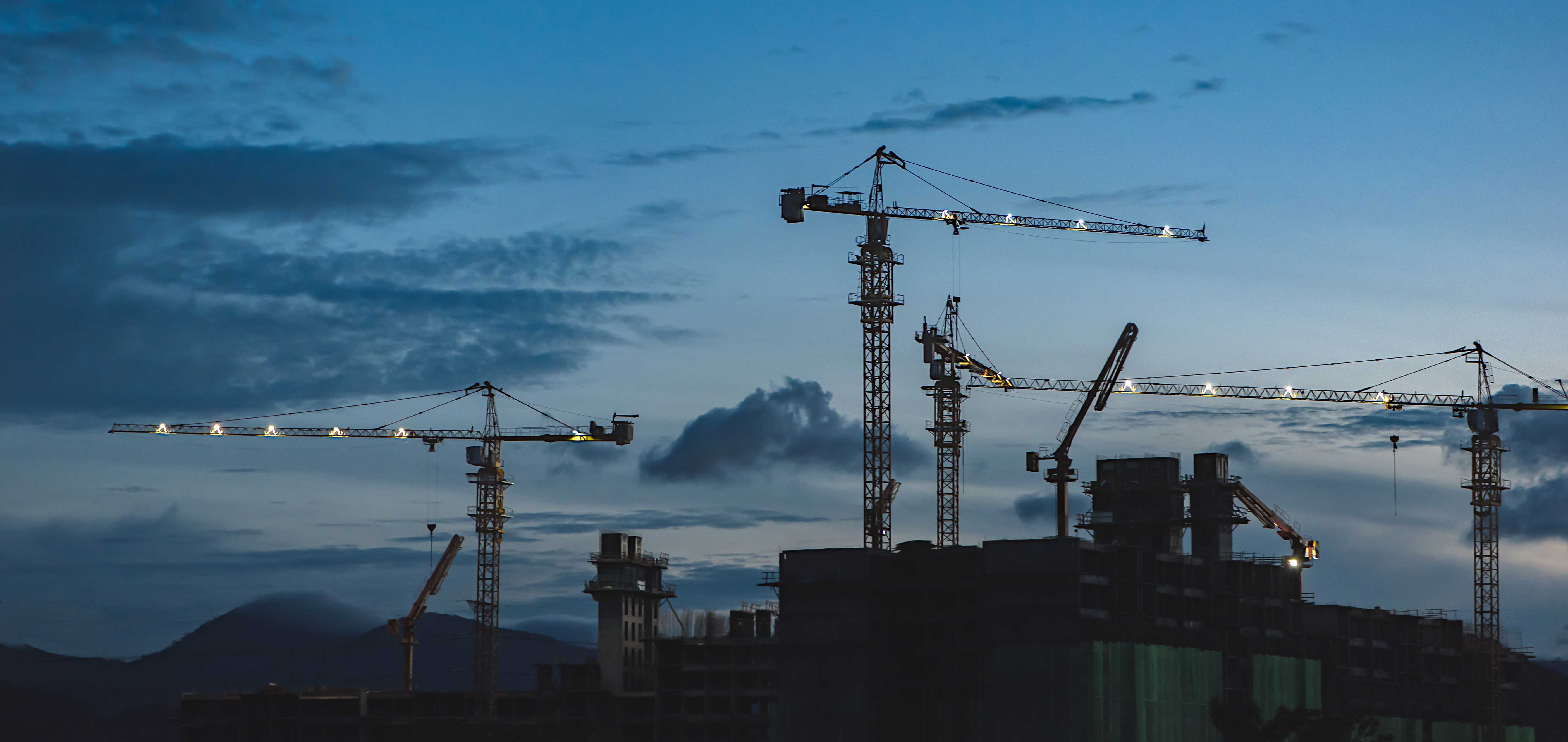Monday, 8 August 2022

It’s no surprise that South East Asia is booming. A growing middle class in Indonesia, Singapore, Malaysia, Vietnam, Thailand and the Philippines is demanding the same luxuries and level of service as the West is used to.
Multinationals are naturally keen to take advantage of the opportunities in these politically stable and rapidly developing countries. The big tech corporations in particular want to build long-term relationships in the region, and do business with local developers and entrepreneurs to build local hubs and data centres.
Too often, however, construction projects are catastrophically late or fail altogether and the relationships are soured. Such outcomes are commonly the result of failing to understand the challenges facing the construction industry in the region.
Generally the multinationals will draw up a contract shifting the risk of delays and labour and materials shortages to the local contractor, just as they would in the West. What they don’t understand is that, while the contractors accept the risk, they often lack the management skill to deal with it.
The fundamental reason for so many failed construction projects is a serious shortage of trade and engineering skills in the region, from carpenters, electricians and welders right through to civil engineers, site supervisors and project managers.
While primary and secondary education in South East Asia is rapidly improving, skills-based training generally lags behind. There is no depth in quality of trades, unlike in the US, Australia and the UK. (Singapore is different because it has a trade-based skills program.)
Another factor is that the middle classes now send their children overseas for their university education and increasingly their secondary schooling. This tech-savvy generation regards the construction industry as lagging behind the far more lucrative and prestigious fields of IT and finance. It is very hard to retain good staff in such a competitive market.
The inability by Clients to effectively de-risk means they are paying twice – once at the beginning and a second time to manage risks as they eventuate. TBH advocates proactive solutions that support clients to implement effective delivery strategies.
Since 1965 we've completed over 8,000 projects — varying in scale from the modest to the massive. As TBH is not affiliated with any external companies, we can provide completely independent advice.

Programming, Planning and Scheduling
Specialists in time-managing entire projects, our recovery strategies for projects 'in distress' can be formulated, working quickly to identify the causes of a problem and then implementing real solutions.

Integrated Project Controls and Risk Management
Integrated Project Controls and Risk Management are a key part of project management, enabling projects to be delivered efficiently to time and budget.

Specialised Management Consulting and Advisory Services
As construction and engineering projects are becoming more complex, TBH provides expertise to deliver practical and in-depth advice for projects of all scale and complexity.
TBH is currently working for several of the big five tech companies on sites throughout South East Asia. Often, we are called upon to assist contractors when their projects are running behind schedule or are forecast to never be completed. In these instances, it’s far better for them to accept a shared risk and to work collaboratively with the contractor to get through.
One of TBH’s strengths in identifying and unravelling delays is the combination of technical experience and local knowledge that our Asia directors bring to each project.
Take Meiske Sompie, who grew up in Jakarta and moved to Australia in her 20s. Much of her technical expertise comes from her Australian experience, but she also has an intimate knowledge of on-the-ground conditions in Indonesia and Singapore.
Meiske says that in the Asian construction industry the emphasis is on how to manage cost rather than time.
“There is still some immaturity in the market about understanding that if you don’t manage time there is a major cost impact. For a mission-critical project like a data centre, if you don’t open it on time you might incur a penalty and you also miss revenue because of that. So you need to manage time as well as cost," she says.
“Scheduling is often seen by the project manager as a reporting function rather than as a crucial project management tool. They’ll often just get someone who can run the software and report on progress but they’re not equipped with the proper skills to understand the impact of delays, recovery options and future risks.
“For a high-risk, time-critical project, the project manager needs to be supported by a planning consultant. That’s our niche in this market.”
Meiske was recently involved with a construction project that was delayed by the impact of Covid as well as misplanning of procurement and logistics.
“The owner knew it was late, but the contractor could not give the owner a clear view of the likely completion date," she says.
“That’s where TBH came in. We audited the schedule, looked at the logic and the activity they had put together, plotted in all the logistics, delays and risks, and showed the likely end date for the project. We also identified potential time saving options within the schedule. That was immensely helpful for the owner.”
Of course such an audit has to be done by someone who understands construction from the ground up, who understands the region – local authority processes, procurement – and who knows the site.
Trevor Lam is another TBH Asia Director who is often called in to analyse delays in construction disputes. Most recently he’s been busy on the delivery of data centre projects across South East Asia, usually for hyperscalers and capacity wholesalers who lease data centre space or capacity to big tech companies.
“A lot of foreign companies are starting to invest,” Trevor says.
“But it’s apparent the standards and expectations of these companies cannot be met by the local talent in emerging markets such as Thailand, Indonesia and the Philippines. There is a huge demand for talent from Singapore where skills training is more advanced.”
Trevor says different industries are at different places in the cycle and TBH takes note of where there is excess talent.
“As soon as the resources market dipped, two to four years ago, there was a huge availability of oil and gas related talent; they were struggling to find work. It coincided with an increase in data centre activity. A lot of the skills sets that come from oil and gas are cross relatable.”
Meiske Sompie says one of TBH’s strengths in a competitive skills market is that it builds skills and resources.
“Other project management companies focus on hiring people to fill in a role. Our hiring strategy is around building skills and internships," she says.
“We’re utilising the experience we have globally to build them up and give them the skill sets they need to manage a project in different regions, different sectors and different services. We train our people to understand what’s happening on site day in day out.”
“TBH people are using their skills and experience to solve problems. That’s what makes our solutions practical ones that can be adopted straight away.”
Guy Scott is the International Chairman of TBH Consultancy. An internationally experienced leader with a reputation for achieving results, he has three decades of experience in South East Asia. He is a former president of the Australian Singapore Business Chamber.
Download our Capability Statement.
“Congrats team, well done, this is awesome what you have produced in such a tight time frame. Look forward to the weeks / months ahead planning this out in detail with you.”

Greg Whiteside, Head of Development, Uptown District - Qiddiya


Download our Capability Statement.
“TBH was first engaged by ALEC on the Dubai International Airport in 2012, since then we've engaged them on numerous different projects. We engaged TBH to help us with coming up with the overall strategy and initial baseline for the project.”

Sean McQue, Director of Construction - ALEC
TBH prepared, presented and obtained
consent from Dubai Airports Engineering Projects for the Main Contractor’s Baseline Program, including design, fabrication, deliveries, installation, commissioning, construction works, operational readiness and integration with existing works and operations.
Feature which makes use case possible.
Briefly expand on how this feature benefit will help your customers.
Feature which makes use case possible.
Briefly expand on how this feature benefit will help your customers.
A giga-project located on Saudi Arabia's north westers coast, AMAALA is expected to become and international attraction for tourists.
TBH was engaged to develop baseline programmes for the project's three districts. We were later asked to provide programme and schedule analysis for the project's contractor schedules.
To find out more, download our Capability Statement.

Feature which makes use case possible.
Briefly expand on how this feature benefit will help your customers.
Feature which makes use case possible.
Briefly expand on how this feature benefit will help your customers.
Feature which makes use case possible.
Briefly expand on how this feature benefit will help your customers.

At over 210m, Ain Dubai is the world’s largest observation wheel and forms the spectacular centrepiece of Bluewaters. Towering high above the coastline, Ain Dubai will provide unparalleled 360-degree views of Dubai’s urban landscape and key attractions. Once completed, this marvel of modern engineering will join the ranks of Dubai’s most exceptional landmarks.
TBH was requested by Meraas to provide advice on delays, disruption and acceleration that occurred during the course of the works.
To find out more, download our Capability Statement.
Feature which makes use case possible.
Briefly expand on how this feature benefit will help your customers.
Feature which makes use case possible.
Briefly expand on how this feature benefit will help your customers.
Feature which makes use case possible.
Briefly expand on how this feature benefit will help your customers.

Christopher Nicolas
Director - UAE
“Powerful testimonial that’s relevant to what you’re discussing in this section. It should focus on problems and outcomes.”
Name, Company
“Powerful testimonial that’s relevant to what you’re discussing in this section. It should focus on problems and outcomes.”
Name, Company
Why do Construction projects fail in Asia?
Project Controls
Risk Management
Planning and Scheduling
Project Management
Strategic Advisory Services
Cost Management
P3M, PMO and Programme management
Claims and Dispute Resolution